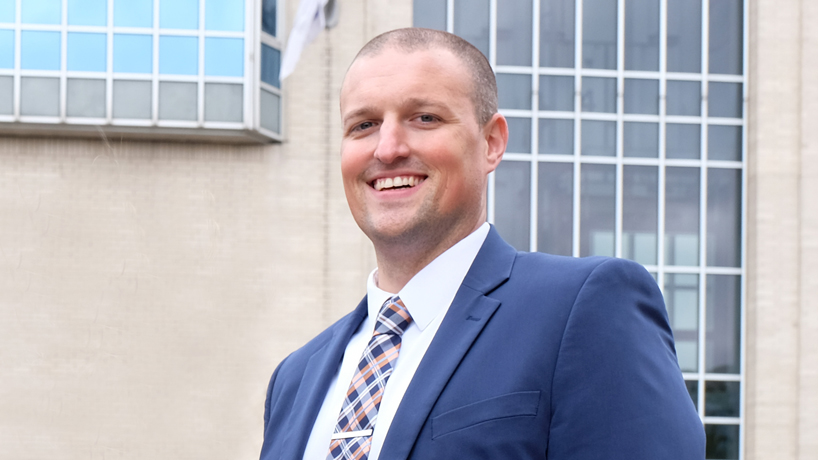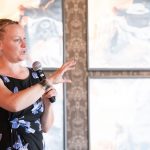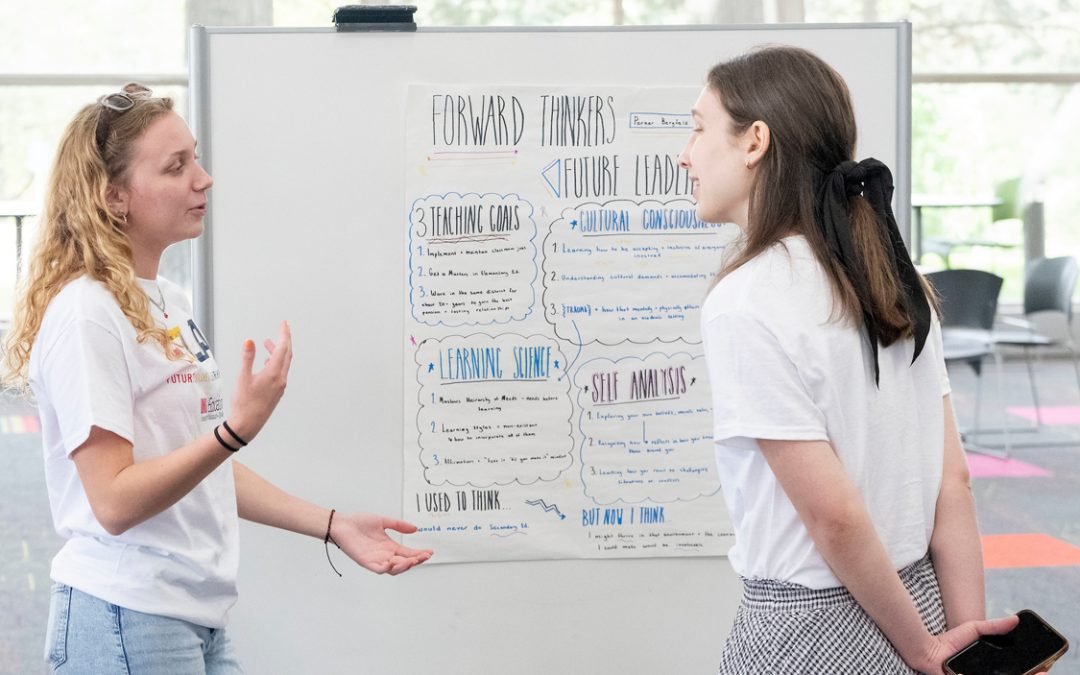
Will Werner has been hired as the new director of UMSL’s National Security and Community Policy Collaborative. Werner spent nearly nine years working as a police planer with the St. Louis Metropolitan Police Department and has a master’s degree in criminology and criminal justice from UMSL. (Photo by August Jennewein)
The University of Missouri–St. Louis’ National Security and Community Policy Collaborative has a new leader.
Will Werner, who earned a master’s degree in criminology and criminal justice at UMSL in 2011 and spent almost nine years working as a planner with the St. Louis Metropolitan Police Department, has been hired to serve as the director for the center, which launched last year with a goal of facilitating collaboration between the university and St. Louis’ growing geospatial technology ecosystem.
Werner, who secured grants totaling more than $5 million during his time at the police department including for the Gun Crimes Intelligence Center, Intellectual Property Crimes Unit, the Victim Services Unit and other technology innovations, is now looking to develop partnerships and connect UMSL researchers with the National Geospatial-Intelligence Agency and other geographic information system-related companies operating in the region. That sector has been expanding rapidly in recent years with NGA’s $1.7 billion western campus under construction just north of downtown St. Louis and set to open in 2025.
“We are so excited to have Will in this role,” said Andrew Kersten, the dean of UMSL’s College of Arts and Sciences. “He comes to UMSL with a wealth of experience in data science and analysis and with an expertise in national security, community policy and geospatial tradecraft. Additionally, he has a tremendous record in getting and implementing grants. His abilities and his professional network are already paying dividends. Finally, Will is UMSL, having graduated with his MA in Criminology and Criminal Justice from the university. He’s the right person at the right time to grow our connections with the geospatial community in the St. Louis region.”
Werner is trying to build on the foundation laid by Bob Ubbelohde, who established the center in April 2020 after a 32-year career with NGA. It operates out of an office in the Geospatial Innovation Center on the fourth floor of nonprofit innovation and entrepreneur development facility T-REX.
“Bob did a really good job trying to lay the groundwork regionally, letting people know that we started this center, and he focused heavily on the NGA component,” Werner said. “It’s hard for me to believe that COVID didn’t hamper a lot of those conversations when you can’t meet in person. I think we’re really poised to be in a good position as we come out of COVID with everything that’s happening regionally. As NGA builds its footprint, there’s a lot of opportunity for our researchers to get involved in some of the projects that they may be working on or to link up with some of the startups at T-REX.”
Werner, who last September was named one of the International Chiefs of Police 40 under 40 awardees, understands the value of applying GIS and other data visualizations to policy problems to help decision-makers determine how to deploy resources.
His job as a planner with the police department involved taking raw data or images and maps developed by the department’s crime analysts and helping department leaders use it inform policy or operational documents.
“My day-to-day is going to be a lot of helping people understand where the value of that GIS technology is,” Werner said, “and being able to help stakeholders apply those GIS techniques and data visualization techniques to practical or policy problems or issues that they’re looking to research and investigate.”
UMSL researchers continue to be heavily focused on projects that support local communities, promote greater equity and can drive social change.
Geospatial analysis can aid in demonstrating the existence of so-called food deserts – under-resourced communities whose residents have to look elsewhere to purchase affordable and nutritious groceries. It can help show how systemic violence is impacting neighborhoods and inform policies to address it. As the past 16 months have demonstrated, it can also help understand how infectious diseases are being spread and who’s left most vulnerable.
All of these issues have implications for national security – something Werner learned to define more broadly over the past two years while working on a second master’s degree in security studies at the Naval Postgraduate School Center for Homeland Defense and Security. He completed his degree in December.
Werner hopes to be able to bring different groups and individuals to try to solve the challenges that have persisted in a region that often struggles with collaboration.
“One of the things that interested me about this position is simply the fact that no government entity or private entity can really be successful in a vacuum,” he said. “I really think that the more people you bring to the table, the more interdisciplinary parts you bring in, the stronger the approach is going to be moving forward.”
In addition to helping faculty researchers contribute to those regional conversations, Werner sees the collaborative opening opportunities for students.
“That’s a place that I see where we can have a huge impact, developing and creating internship opportunities regionally,” Werner said. “There’s so many good students that are looking for those skills in the job market right now. If you don’t have some experience, it’s so hard to get a job straight out of school.
“I see NGA again as a huge partner for us, and my goal is to be able to be a feeder for them and a place where we can help develop students and develop researchers. But locally, we have a lot of really good public organizations and private institutions that deal with not only GIS but intelligence collection and intelligence dissemination with which we can build lasting relationships.”














